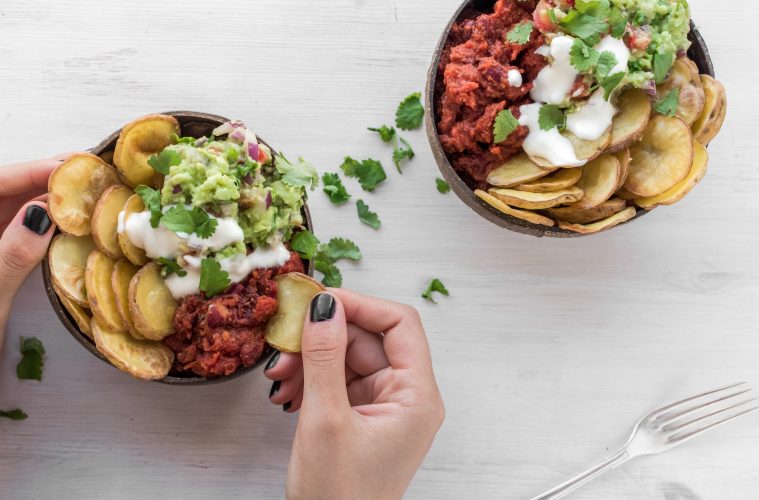Most experts believe it takes an average of 66 days to form a habit. One habit dietician Aziwe Booi is hoping South Africans will improve on is plant-based foods.
Many diseases such as diabetes, high blood pressure, and other lifestyle-related diseases may be prevented by a healthy diet. Aziwe Booi suggests trying a plant-based diet to start developing healthier eating habits and boost your wellness. Aziwe shares the following tips to start you on your plant-based eating journey, to help you get healthier — and keep it that way!
Understand what plant-based eating is and why it’s good for you
As a nation of meat-eaters, the idea of plant-based foods might sound a little scary. All this means though is a diet rich in vegetables, wholegrains, legumes, nuts, seeds and fruits that do not include meat products. Starting to incorporate plant-based foods into your diet may raise questions about protein. It is true that protein helps keep us fuller for longer, but we are all used to meat-based protein. How do you get your daily intake from plants?
Aziwe Booi explains, ‘Certain plants such as legumes, wholegrains and nuts contain plant-based proteins which are good for preventing non-communicable diseases such as diabetes and high blood pressure, for example.’ In addition to helping reduce disease, there are other health benefits of a plant-based diet. This includes gaining energy, building muscle (when exercising), reduction of fat intake which is good for heart and organ health, and aiding weight management.
Don’t be afraid to make a change, start simple!
Adding more plant-based foods in your diet doesn’t have to be a complicated process. Nor does it have to be all at once. Start with a plant-based protein at breakfast. Rather than bacon, have ProNutro for example. It contains a high amount of plant-based protein natural powder, is a source of Vitamin A, Vitamin B, iron. It is a nutritious – and easy – breakfast swap for the whole family.
‘This type of plant-based protein is good for gut health and the digestive system, most notably it is also good for mental health. By including more plant-based foods such as fruit and vegetables into your diet you can also reduce the risk of certain mood disorders,’ says Aziwe. This is especially important to remember when eating breakfast. What you eat could change your mood for the day!
Going back to basics
For families trying to include more plant-based foods into their daily eating habits, the question around finances is an important one that comes up. Imported products and fancy packaging may leave shoppers in a tizz but it’s actually about going back to basics. When it comes to the type of plant-based foods you include in your diet, educate yourself on nature’s offering first.
Be intentional and educate yourself
When moving to plant-based foods, educating yourself about this lifestyle change is important. Read as much as you can, speak to a dietician and ask questions. Doing research can help you make informed decisions about the type of foods you should be eating. It can also assist with identifying what you can treat yourself with and what to stay away from. Thus reducing wastage and helping you to reduce costs. Understanding labels is also important as it will help you to make informed purchases.
There is a lot of fancy marketing jargon out there, so try not get caught up. ‘Take your time to understand what makes up a plant-based diet, a simple peanut butter and jelly sandwich is also considered a plant-based meal. Things like hummus, pesto (without cheese) are all plant-based, you just need to be intentional about what you are eating. Another way to incorporate plant-based is to go for meatless Mondays, for example,” adds, Aziwe.
Plan, plan, plan!
Meal planning has proven to be one of the most effective ways to stick to eating plans and to save money. By planning weekly and monthly menus shoppers are able to make informed purchases without overspending. You may save money considering that plant-based diets do not contain expensive meats but things like lentils and chickpeas instead. These can be purchased for as little as R20 and go a long way!
Look for substitutes and replacements abut remember to start slowly. ‘Take meals you already enjoy and substitute meat for plant-based items. A good substitute for example is lentils for mince in your spaghetti bolognaise as a way to start.’
To conclude, trying to add more plant-based foods into your existing diet can be challenging in the beginning but incorporating it into your daily life gets easier with a little bit of research and experimentation.
Aziwe’s quick tips for making the switch to plant-based foods:
- Get educated about going plant-based
- Speak to your dietician or health practitioner
- Find meat substitutes for your favourite meals
- Understand the health benefits
- Learn to read food labels
Written by Savanna Douglas for Woman&Home
Featured image: Alexandra Andersson via Unsplash

